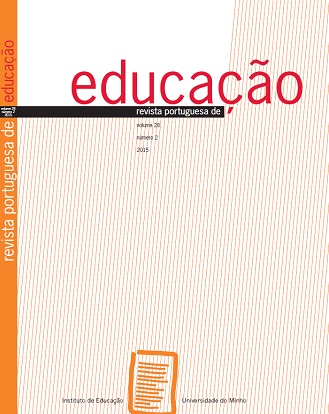Evaluation of the national program of portuguese language teaching (PNEP) in primary school: students' perceptions
DOI:
https://doi.org/10.21814/rpe.7732Keywords:
Language teaching in primary school, In-service teacher training, Perceptions, StudentsAbstract
This article presents a study of students' perceptions about the National Program of Portuguese Language Teaching (PNEP), an in-service program for primary school teachers aimed at improving the teaching and the learning of Portuguese language and implemented in the context of professional activity.The results of the quantitative analysis of data, collected through a survey questionnaire administered to students at the end of the 2009-2010 year in the regional center located at the University of Minho, reveal very positive representations about the learning process and about the contents of learning.These data point to the validity of the language pedagogy design that supported PNEP, illustrate the positive perception that teachers revealed on their own professional development and emerge as an illustrative case of the feasibility of conducting surveys with primary-school children.Downloads
Downloads
Published
How to Cite
Issue
Section
License
1. The authors preserve their authorship and grant the Portuguese Journal of Education the right to the first publication. The work is licensed under Creative Commons Attribution License that allows sharing the work with the acknowledgment of initial authorship and publication in this Journal.
2. The authors have the right to take additional contracts separately, for non-exclusive distribution of the published version of their work (e.g. to deposit in an institutional repository or as a book chapter), acknowledging the initial authorship and publication in this Journal.
3. The authors have the permission and are stimulated to post their work online (e.g. in an institutional repository or on their personal website). They can do this at any phase of the editorial process, as it may generate productive changes, as well as increase impact and article citation (see The Open Citation Project).
The work is licensed under Attribution-ShareAlike 4.0 International (CC BY-SA 4.0)




















